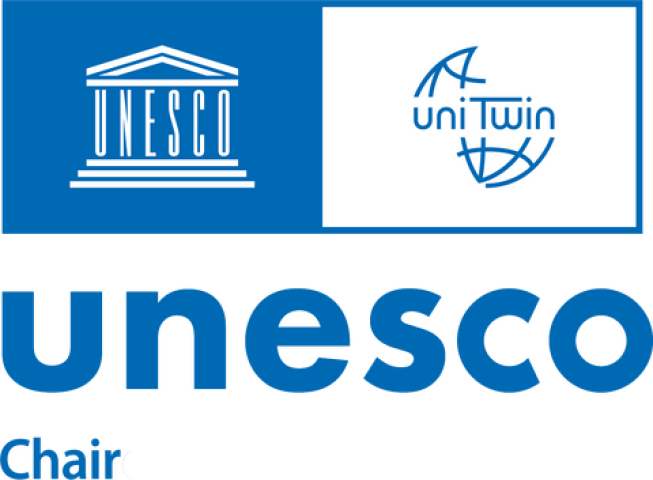Master Environmental Engineering

Degree type
MasterDuration
2 yearsField
EnvironmentRythm
Full timeCampus
Marseille campusLanguage
EnglishComplex Systems
This Master’s degree meets the need for engineers trained at an international level, able to manage “Complex Systems”.
Apply now
Applications are open between December 15, 2024 and June 1, 2025.
Feel free to contact us for any further information.

Overview
Environmental systems, which lies at the core of current major challenges, is a “complex system” which overall behavior is controlled by the interactions of all its multiple elements.
Understanding, modeling and handling such systems require specific skills that students will acquire through the exceptional academic and applied training environment of this Master’s program. lt will provide you with a rich interdisciplinary educational experience in environmental engineering and prepare you for a professional career in optimal conditions.
Beyond the wide academic knowledge gathered, you will also enrich yourselves with a broad range of experiences:
- Labs/companies visits, seminars...
- Soft-skills and management courses
- Up to 10 months of work & research placements (projects, clinical/research/ company internships...)
- A multicultural international experience in southern France & Learning the French language.
This Master’s degree aims at training bicultural engineers with strong and broad scientific & technical skills, coupled with solid experience in management, innovation & research.
National Diploma - Master's degree accredited by the French Ministry of Higher Education.
Complete Program: Content 140 ECTS / 1150h / Full English Track.
Our supports

Amidex
The MScT CSE of Centrale Méditerranée is a world-class research and higher education program, supported by the Amidex label, the Aix-Marseille Initiative of Excellence.
Learn more about Amidex

UNESCO Unitwin
The program has close ties with the Chaire UNESCO Unitwin 651, and promotes the Sustainable Development Goals, supporting prosperity while protecting the planet.
Learn more about Unitwin 651
Program highlights
- A full-time 2-year Master's program
- 100% taught in English
- Courses are delivered on the Campus of Centrale Méditerranée in Marseille, and online.
- The program includes more than 8 months of internship in Laboratories or Companies, in France or abroad
- Upon completion, students will get a French higher education diploma (National Master's Degree) certified by the French Ministry of Education and recognized all over the world.
- Small cohorts with solid scientific background, coming from all over the world, willing to learn sciences and management to impact the world.
- High-level classes delivered by renowned professors, experts in their field of research.
- Diversified knowledge and activities: Sciences and management classes, research in Labs, internships in a Company (in France or worldwide), Intercultural and Languages courses, Conferences and Webinars, Students activities…
- A dedicated team to ensure integration and connection within the School and its ecosystem: International Affairs, Career Department, Students Union and Alumni Association

Up to 10 months of lab, clinical or company internships
Environmental engineering
Environmental engineering is a branch of engineering that applies the principles of science and engineering to improve the natural environment. It involves the study of the interaction between the environment and various human activities, such as industrial processes, transportation, and construction, among others.
Environmental engineers design and implement solutions to prevent, control, or remediate environmental problems, such as air and water pollution, waste management, and climate change.
The goal of environmental engineering is to protect human health and the environment by promoting sustainable development practices that balance economic, social, and environmental factors.
The aim of environmental engineering is to provide sustainable solutions to environmental problems by applying scientific and engineering principles.
The field has evolved over the years, and its focus has shifted from end-of-pipe solutions, such as pollution control and waste treatment, to more holistic approaches that address the root causes of environmental problems.
The ultimate goal of environmental engineering is to create a sustainable future, where the natural environment is protected, and human activities are in harmony with nature. This includes promoting the use of renewable resources, reducing waste generation, improving energy efficiency, and minimizing the use of harmful chemicals.
Additionally, environmental engineering also aims to promote social equity and justice, by ensuring that environmental risks and benefits are shared equitably among all members of society.
Overall, the aim of environmental engineering is to achieve a balance between economic growth, social development, and environmental protection for the benefit of present and future generations.
Environmental engineers need a strong foundation in scientific competencies to be successful in their field. Here are some of the key scientific competencies that are required:
- Environmental chemistry
- Environmental microbiology
- Hydrology and water resources
- Soil science
- Environmental physics
- Environmental biology
- Data analysis and modeling
Environmental engineering requires a diverse set of skills that combine scientific and technical expertise with critical thinking, communication, and problem-solving abilities.
Hanna, class of 2023
Offshore Renewable Energy R&D
The master's program in Complex systems engineering-track environmental engineering at Centrale Méditerranée is highly acclaimed for its comprehensive curriculum, offering a balanced blend of theoretical knowledge and practical applications.
Noteworthy is the program's commitment to bridging the gap between academia and the real-world application of environmental engineering, ensuring students acquire both depth of understanding and practical skills.
The inclusion of internships further strengthens the program, providing students with valuable hands-on experience and industry exposure, ultimately preparing them for successful careers in the dynamic field of environmental engineering.
The program's holistic approach instills a strong foundation of knowledge and practical skills, underscoring its dedication to producing graduates well-equipped for the challenges of the professional landscape.
Admission and fees
The MScT CSE is open to students and young professionals from all over the world. Diversity of cultural background and gender are valued. The master’s course is fully taught in English - B2 level (independent user) is required.
The Master’s program is designed for undergraduate students with a strong background in sciences: licence/bachelor's degree (180 ECTS) in physics, mechanics, applied mathematics, civil engineering, or engineering sciences.
Direct entry in M2 is possible with a validated M1 (60 ECTS) or relevant professional experience.
Engineer Students from Centrale Méditerranée can apply for the Master (M2) for their Césure (S7 / S8)
Applications for the academic year 2025-2026 are open from December 15, 2024 to June 1, 2025.
The application process is organized in two stages:
- Pre-selection based on application: apply online on the eCandidat platform
- Selection based on an interview
Engineer Students from Partner Universities can apply for the CSE Degree or Credits via their home university. Check our International Network here.
Apply via your Home University before May 1, 2025: Your nomination must be sent to internationalmobility@centrale-med.fr. You will be selected on the basis of your application and an interview, and your application will be processed via our international platform Mobility Online. The code for the program is Centrale Méditerranée – Master CSE.
Engineer Students from Cairo University with a 4 years Bachelor in Sciences from C.U: Apply to Centrale Méditerranée via the International Service of Cairo University. Your nomination must be sent to internationalmobility@centrale-med.fr.
Fees
- European Students: €6 750 / year*
- Non-European Students: €10 270 / year*
- Students enrolled in or coming from either a member institution of the RMEI or a partner institution of Centrale Méditerranée with which an agreement has been signed: 50% of the applicable fee
* including the Master's tuition fees defined by ministerial decree each year + training fees not eligible for exemption for social-grant holders or French government grant holders.
Specific exemption for Centrale Méditerranée's preferred partners with whom an agreement is in force: one total exemption per course and per year (M1 and M2) for each partner, according to academic success criteria (based on the decision of the admissions committee).
Scholarships
- TIGER Scholarships for academic excellence will be awarded to the best students.
To benefit from a TIGER Master's Excellence Scholarship is to benefit from financing (up to €10 000 for one academic year), accommodation (reservation of a room in a CROUS residence) and a privileged welcome.
Eligibility: international students never enrolled in a higher education institution in France and not of French nationality.
NB : Being awarded a TIGER scholarship does not exempt students from paying tuition fees when they register at Centrale Méditerranée.
The application for the TIGER master's excellence scholarship is made automatically when you apply for the MScT CSE.
Career prospects
This Master's program is designed to provide students with high-level specialty knowledge and transferable skills to pursue careers in companies, global corporations or non-governmental organisations or for those interested by research to pursue their studies by a PhD.
This Master’s program aims at training project manager engineers capable of managing complex projects and teams.
Following the Environmental engineering Master’s program will lead you to careers involving the provision of high-quality environmental consulting services, performing research for complex planning and development projects, leading the definition and/or execution of environmental strategy, etc.
Example of positions: engineer addressing air and water pollution monitoring, control and/or forecasting, landscaping for urban climate control, flood prevention, CFD for environmental/energy analysis, etc.

Environmental engineering Master's 2024 webinar Replay
Global experience
Centrale Méditerranée promotes the values of Excellence, Innovation and Responsibility, and belongs to the prestigious Groupe des Ecoles Centrales, the public reference in Engineering education in France and worldwide.
The School is involved in International Networks: TIME, RMEI and Gay Lussac, and contributes to the main International Programmes: Erasmus+, Brafitec.
MScT CSE students have access to the 7 laboratories of the school and all the collective facilities and events.
Contacts

Olivier Boiron
Head of the MScT Complex Systems Engineering,
Head of the MScT CSE’s Environmental Engineering track,
Director of International Relations,
UNESCO Unitwin 651 Chair holder.

Frédéric Schwander
Maître de Conférence,
Responsable parcours S8 Dynamique, Mutations & Crises.

Alice Rageot
Graduate School Program Manager